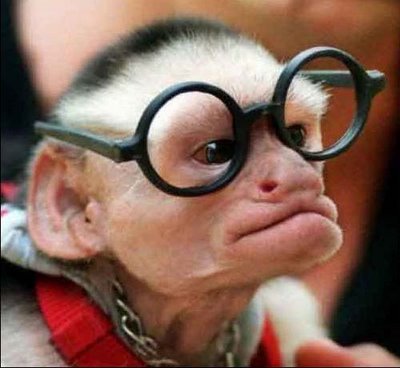
An unwelcome guest.
I have a problem with my brain: thoughts sometimes get on a loop and just cycle for days, sometimes weeks. My brother X.W. (of course these initials are fictitious for the protection of my brother Eric) suffers from the same problem, and his is of a particularly vicious flavour (I’m practicing my Canadian spelling before we move there). The phrase “I’ve got a song stuck in my head” is the point of departure for X. He’ll be stuck on a line from a song for days. Lately he has had a tough time escaping the rut of “Encarnacion”, a love song by Jack Black in the movie Nacho Libre. And X doesn’t remember with quiet images tucked into the recesses of his private thoughts—X remembers with his entire body, most prominently his highly developed, operatic, stuck-on-full-volume vocal chords. This gives the reader a taste for the struggles endured by my brother and me.
This neurological issue isn’t the same thing as my past-time of being obsessed with a problem or two for years at a time. In fact, this loop malfunction often interrupts me in what contemplations I’ve managed to conjure. Just when I feel I’m on the verge of some important intellectual milestone, everything unexpectedly shifts gears and I find myself mentally repeating something like “gorgonzola . . . gorgonzola . . . gorgonzola,” as if it were the most natural thing to be doing with my time. Other times, it's more of a motor memory. If I'm on the computer I'll find myself just randomly clicking the mouse in circles, mesmerized for minutes by the little white arrow. And this has led me to the latest obsession: the intrusiveness of memory.
Well, it started as an interest in intrusiveness, but now I’ve moved on to other interesting aspects—particularly the ethics of memory.
The more I read about memory, the more I’m convinced that memory isn’t a matter of simple retrieval or access. Rather, it is a relatively creative process that relies upon cues from the situation that called for the memory in the first place, cues including personal contributions to the situation like emotional mood, level of hunger, the particular social goals and fears that are most salient at the time, etc. In light of the possibility of our creative role in memory, intentional or not, we should be anxious to explore different attitudes toward the ways in which we remember ourselves and others.
It seems to me that one important application of these thoughts, if they're accurate, is that we have the ability to examine how we see others and analyze the role of particular memories with them (memories we maybe once considered infallibly accurate portrayals of how things played out), take advantage of our creative role in memory, and reinterpret the event in a more charitable, humane light. If we do this enough, we may even find that we have formed rather pernicious habits of remembering events in a self-absorbed way. I don’t think it would be inaccurate to say that we form addictions to certain roles (usually those that are, ironically, self-preserving in some ultimately destructive fashion), and that our acts of memory tend to be shaped by these roles.
And this also goes for how we remember ourselves. In our struggles to be honest with ourselves, how can we be true to something into which we only have foggy insight? Do we sometimes assume that it is impossible to be wrong about what some mistake, some blunder, or some bloated victory ultimately means for our selves? And do we make the mistake of assuming that these memories about others and ourselves could ever be neutral? What happens when we start to take responsibility for the implications of the meaning of a memory? A memory is never a neutral thing.






No comments:
Post a Comment